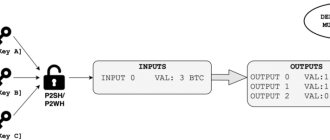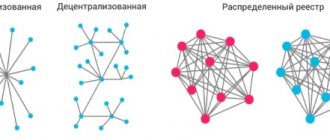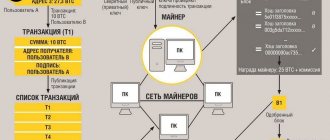Most banks traditionally avoid cryptocurrencies, preferring the motto:
“Blockchain yes, cryptocurrencies no.”
“This is extremely difficult. The legalized marijuana industry is facing far less challenging times than our cryptocurrency clients ,” said Joe Ciccolo, president of compliance services provider BitAML.
But while many giants are “ripe” only for the implementation of blockchain platforms, some players are no longer afraid to declare warm relations with crypto projects.
Silvergate Bank
On November 30, during the BlockFS conference in New York, Silvergate Bank CEO Alan Lane reflected on Silvergate's long journey in the crypto space. Lane himself bought Bitcoin in 2013, and at the same time his small bank at that time, located in San Diego, California, accepted its first crypto client - a cryptocurrency exchange, which was a very bold step for a financial institution.
“These companies existed, and they raised funds from reputable [venture capital] firms. They didn't do anything illegal, they didn't do anything immoral. And at the same time, they really needed bank accounts. So I combined our need for deposits with their need for banking services ,” Lane said.
Today, Silvergate is one of the leading banks for US crypto startups. Over the years, Silvergate has narrowed its focus almost exclusively to serving cryptocurrency exchanges, over-the-counter trading platforms, and institutional investors.
Cryptocurrency exchanges among Silvergate Bank clients include:
- Coinbase
- Gemini,
- Kraken,
- bitFlyer.
In a Nov. 16 filing with the SEC, the bank said it currently works with 483 crypto startups, which had approximately $1.7 billion in deposits as of Q3 2020.
At the same time, Lane notes that the bank is extremely transparent in regulatory matters and obliges the CEO of crypto exchanges to meet directly with the bank’s regulators. Lane says that even in the early stages, he only worked with startups that had traditional finance due diligence people handling compliance.
“The chief compliance officer is not a multi-tasker,” Lane says, noting that at the time, the CEOs of many crypto startups performed almost all the functions that would normally be distributed among team members.
The ability to track transactions on the blockchain allows Silvergate to avoid the risk of being involved in illegal transactions often associated with cryptocurrencies. At an early stage, the bank introduced a monitoring system that links deposits made with data from the bitcoin blockchain. A bank employee has the right to conduct quarterly inspections of exchanges by visiting their office and checking that they keep the tracking system up to date.
“We wanted [we] to be able to see both sides of transactions. When you make a bank transfer of $50,000, send us the blockchain address... [on it] we want to see a transaction that matches the value of $50,000 ,” Lane says.
To create more customer-centric communications and remain competitive, Silvergate is integrated into exchange APIs so that institutional investors can trade or deposit instantly, 24 hours a day. This is also attractive from the point of view of urgent withdrawals to fiat, which, as Lane notes, is important in the event of an exchange hack.
Blockchain in simple words: why is it being implemented so slowly
There are several reasons for this, and one of them is the limited capabilities of technology. Today, blockchain is capable of processing several dozen operations per second, which is clearly not enough for the global problems that it has to solve. A powerful nano-crypto processor will presumably be created only in 2024-2025.
After its appearance, powerful mining farms with 20-50 thousand video cards will replace portable portable devices. Just as tube equipment was once shrunk down to fit into regular smartphones, and the speed of operations was increased manifold. Likewise, cryptoprocessors will speed up computing power tens of thousands of times. That’s when “blocking” will begin on a global scale.
Morgan Stanley
In September, Bloomberg, citing a source with knowledge of the matter, reported that Morgan Stanley was planning to open trading in Bitcoin derivatives, joining other major players who are preparing to enter the space.
Investors will be able to go long and short using so-called reverse swaps, and the bank will charge a spread on each transaction. According to the source, Morgan Stanley is not going to trade Bitcoin directly; swaps will be tied to Bitcoin futures contracts.
Earlier this year, Morgan Stanley CEO James Gorman did say that the bank would not allow clients to trade cryptocurrencies directly, but would create a trading platform that would support various derivatives tied to digital assets.
In June, Morgan Stanley hired Andrew Peel as head of digital asset markets (Peel previously worked at Credit Suisse Group AG as a derivatives trader and, since 2020, served as vice president of sales and trading innovations, including cryptocurrencies).
According to a Bloomberg source, from the technical side, the bank is already ready for swap trading and will launch it if there is sufficient interest from institutional clients, after completing the internal approval process for a new type of operation. The bank has not yet confirmed or denied the information received from Bloomberg.
Morgan Stanley also contributed to cryptocurrency market research and analysis. The report, "Bitcoin Decrypted: Rapid Learning and Application," released by Morgan Stanley's research department on October 31, shows that institutional clients are becoming more interested in cryptocurrencies, while interest from retail traders is falling.
According to the document, the volume of cryptocurrency assets managed by venture capital firms, hedge funds and private equity firms has gradually increased since the beginning of 2020 and currently stands at $7.11 billion.
The report analyzes the cryptocurrency market over the past 6 months. Particular attention is paid to Bitcoin: researchers believe that it is “improving and solving its problems.” Dr Zeynep Gurguk, a research fellow at Imperial College London, believes Bitcoin could become a means of payment within the next decade, while noting that the first cryptocurrency still needs to overcome issues related to scalability, regulation, volatility and privacy.
The researchers also analyzed the stablecoin niche, noting that the growth of such projects began at the end of 2020 and increased throughout this year. One of the observations of scientists indicates that today’s fall in the crypto market has led to an increase in the share of Bitcoin in trading volume paired with the leading stablecoin Tether. At the same time, scientists believe that not all stablecoins will survive in the long term, and those that provide lower transaction costs, higher liquidity and a transparent regulatory structure have an advantage.
Blockchain platform and its impact on mortgages
Mortgage lending in the future will look like this:
- A smart loan contract is launched.
- From the ID of the banking institution, funds are transferred to the client ID via blockchain.
- Almost immediately, funds from the borrower's account are transferred to the account of the real estate seller.
- By title branch, ownership passes from the seller to the bank.
- Further, according to the terms of the smart contract, a certain amount of funds from the borrower’s account will be transferred to the bank’s account a certain number of times on certain days of each month.
- After the last transfer, ownership will automatically transfer from the bank to the borrower.
- The smart contract will be automatically closed.
In this entire process, banks have a minimal role. During the validity period of the smart contract, it is impossible to make even minimal changes to the property: register someone, change the title, defer payment or lose the mortgaged property.
Sberbank
Sberbank of Russia is one of those who carefully approach building relationships with the crypto space and follow the path of introducing blockchain platforms. Thus, on November 30, Reuters reported that Sberbank and the investment company carried out a blockchain transaction, which was not the first for Sberbank. The companies closed the so-called over-the-counter currency repo transaction, which is the sale of securities with an obligation to repurchase them at a predetermined price.
Vice President of Sberbank, Head of the Global Markets Department Andrey Shemetov said that this was “a foreign currency repo secured by Eurobonds of a first-tier Russian issuer (it includes companies with the most successfully traded shares. - DeCenter).”
The agreements were entered into the Sberbank blockchain platform based on Hyperledger Fabric using smart contracts and digital signatures. The volume of the transaction was not disclosed, but Shemetov approximately estimated the amount as corresponding to the average volume of an interdealer repo transaction. He noted that the transaction was not a test, but was a real financial contract.
According to Shemetov, concluding repo transactions on the blockchain has a number of advantages compared to traditional over-the-counter transactions. Blockchain allows for real-time monitoring of market terms of a trade, auditing of data on a bilateral basis, and automation of settlement and operational functions such as interest payments, margin calls, clearing and repositories.
“In the future, concluding transactions through the blockchain platform will reduce transaction costs and errors due to automation, and will also increase transparency and trust between all participants in the financial market ,” Shemetov said, which suggests that Sberbank may in the future put similar transactions on flow.
Jonathan B Morley That Book on Blockchain: A One-Hour
This book is about Blockchain - and everything connected with it. This book is not a significant introduction to the world of crypto investing, crypto farming and cryptocurrencies, it is a fast paced, one hour introduction to the world of blockchains. Inside you will find an overview of many prominent topic threads that will clarify the basic concepts and principles of work in this area. With this book you will gain basic knowledge. According to the author, this book will be useful to all researchers and farmers in the field of blockchain, regardless of whether you are new to the crypto space or a well-established guru. This book on Blockchain is a guaranteed guarantee of your success and will serve as a motivator for further study of this system.
Alan T. Norman Blockchain Technology Explained: The Ultimate Beginner's Guide About Blockchain Wallet, Mining, Bitcoin, Ethereum, Litecoin, Zcash, Monero, Ripple, Dash, IOTA and Smart Contracts
This book focuses on the basics of how blockchain technology works and how it can be used in the future. This book covers the following questions: what is a block, what is a chain and why do we need it, what problems are solved with the help of Bitcoin and blockchain, can this technology replace our institutions (for example, governments, banks), will there be conditions for the development of cryptosystems and cryptocurrencies in the future. The book does not contain a block on the practical side of working with cryptosystems; this is an exclusively theoretical study on the emergence and functioning of the cryptocurrency system.
Metropolitan Bank
Another speaker at BlockFS was Nick Rosenberg, Chief Information Officer of Metropolitan Bank in New York. He said that Metropolitan is also looking to collaborate with a wide range of crypto startups (in particular, the bank's crypto clients include the Coinbase exchange).
“We are definitely very interested in building this vertical. We realized that this is a serious industry. There are some very smart people involved. There are some very interesting ideas emerging that could really change the way people do business ,” Rosenberg told Coindesk this summer. At the moment, Metropolitan is already working with crypto companies, providing a fiat deposit service.
In a report to investors, the bank reported that in the first quarter of 2018, commissions on transactions related to crypto clients amounted to $3.4 million. This increased the bank's non-interest income by 300% compared to last year.
Smart contracts in the world of blockchain
So-called “smart” contracts will unite different chains and turn them into one single whole. They will develop simultaneously in different branches and transfer different titles and assets from one user to another. All this will involve not only people, but also smart things from the Internet of Things. All this together will produce the fourth industrial revolution that humanity is waiting for - both in the banking sector and in many other areas of activity.
By the way, you can also read about the Internet of Things - a technology that is often mentioned in the same breath as blockchain as equal in importance - on our website. Read, comment, ask questions, we are very interested in your opinions!
- 3shares
- 0
- 0
- 3
Fidelity
On October 15, financial services provider Fidelity Investments announced that it was launching the Fidelity Digital Asset Services platform for cryptocurrency trading and cryptocurrency custody. The platform will be available for corporate clients.
Fidelity plans to create a "scalable infrastructure" that will build on the company's experience in building similar platforms in the traditional sector. At launch, the platform will provide “institutional-grade storage,” trading access and “dedicated customer service.” It is known that at an early stage, Bitcoin and Ethereum will be accepted for storage, as well as a number of other cryptocurrencies that will be announced later.
Security will be ensured through cold storage and “multi-layered physical and cyber controls.”
CEO and Chairman of Fidelity Investments Abigail Johnson noted that the goal of the new platform is “to make native digital assets like Bitcoin more accessible to investors.”
“Our efforts have been successful in helping us understand and improve our understanding of cryptocurrencies... The creation of Fidelity Digital Assets is the first step in long-term plans to create an enterprise-grade platform [providing] a full range of services for digital assets. The institutions are telling us that to get into digital assets in a meaningful way, you need a trusted platform provider to enter the space. These institutions need a high level of service and security consistent with the experience they are accustomed to when trading stocks and bonds ,” said the head of the new division, Tom Jessup.











